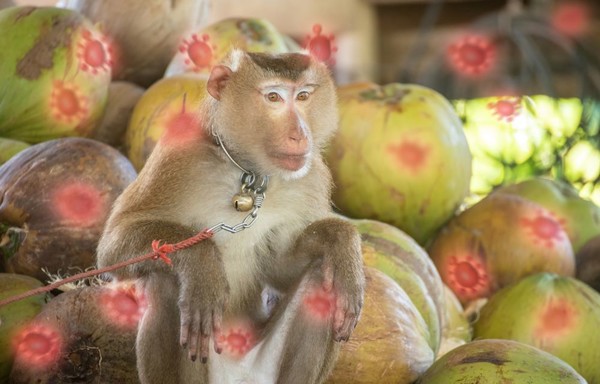The quarantine authorities said Wednesday that they have confirmed the first monkeypox case.
According to the KDCA, the patient, who arrived at Incheon International Airport from Germany at 4 p.m. Tuesday, has tested positive for the virus. The person has been in isolation treatment at Incheon Medical Center, west of Seoul, since arriving in Korea.

Before testing positive for the virus, the patient reportedly had a headache two days before departing and showed symptoms of fever, sore throat, lethargy, and skin lesions when arriving at Incheon International Airport.
The patient had reported his condition to the KDCA. As a result, the airport quarantine station and the central epidemiological investigator classified the patient as a suspected monkeypox carrier.
An epidemiology survey of the patient showed that he had no high-risk contact, meaning family members or anyone who had regular or sexual contact with the patient within 21 days.
KDCA stressed that it is actively monitoring the health conditions of those who sat near the patient on the person's arrival flight.
A foreigner, one of the two patients who were reportedly undergoing tests after being suspected of having monkeypox, has tested negative. However, the hospital has since diagnosed the patient as having chickenpox.
With Korea confirming its first-ever monkeypox case on Wednesday, the KDCA has raised the country's monkeypox risk level from "attention" to "caution," the second-level of its four-tier infectious diseases threat level system, and decided to bolster measures against the spread of the virus.
The government plans to treat monkeypox patients in isolation at specialized hospitals, and is also considering a 21-day mandatory self-isolation period for those with a high risk of transmission after coming in close contact with monkeypox patients.
Monkeypox is an acute fever and rash disease caused by a virus infection. Rodents are the main carriers of infection, and the virus mainly transmits through close contact with symptomatic infected patients.
The virus, traditionally confined to Africa, has been spreading rapidly worldwide after the U.K. reported its first case on May 7.
As of the last Wednesday, the virus has infected 2,103 patients in 42 countries worldwide, with only 64 cases (3 percent) in Africa and the rest in non-endemic regions centered in Europe.
Health experts have noted that while the respiratory transmission is possible, air transmission through micro-aerosols containing the virus is not common, making monkeypox less highly contagious than Covid-19.
According to the World Health Organization (WHO), the fatality rate of monkeypox in recent years is 3-6 percent, not negligible.
The WHO urged caution among such groups as the virus can progress to severe cases in newborns, children, and immunocompromised patients.
Meanwhile, President Yoon Suk-yeol ordered officials to strengthen quarantine management for overseas arrivals at airports and closely monitor the situation for additional domestic outbreaks.
“Health officials should make all the necessary preparations so that they can quickly distribute the currently secured vaccines and therapeutics to the medical field,” President Yoon said. “Also, Korea should introduce the third-generation vaccine and antiviral agent for monkeypox as soon as possible.”

